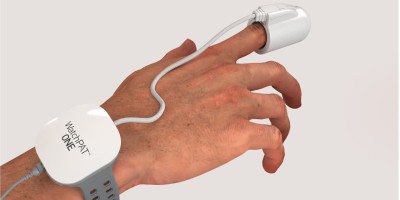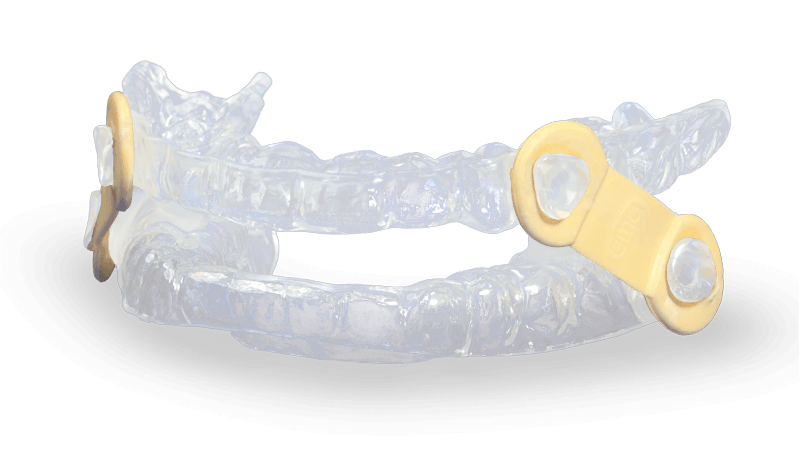What is Obstructive Sleep Apnea?
Before diving into treatment, it’s crucial to understand what obstructive sleep apnea (OSA) entails. OSA occurs when the tissues in your airway relax too much, causing a blockage that disrupts normal airflow. Snoring often results from this obstruction, and many people may not realize that snoring could be the underlying sign of OSA.
OSA can lead to choking or gasping as the body attempts to breathe, sometimes stopping breathing for ten seconds or more at a time—hundreds of times each night. This interruption in breathing can prevent restful sleep, leaving you feeling tired, irritable, and unable to focus during the day.
OSA is not exclusive to older adults. Young people and those in good physical health can also develop this condition. If you suspect that you have OSA, a sleep study can confirm the diagnosis and guide the development of your personalized treatment plan. Our Rockledge, FL dental practice offers effective solutions for snoring that don’t involve medication, surgery, or bulky masks.
Think You Might Have Sleep Apnea?
If you’ve had a sleep study and received a confirmed diagnosis, we can begin discussing treatment options right away. Unsure whether you’re a good candidate for sleep apnea treatment? Take the Epworth Sleepiness Scale to determine your daytime sleepiness levels.
Dental Issues Linked to Sleep Apnea
As we explore sleep apnea treatment, it’s important to understand the connection between sleep apnea and common dental problems. The disruption caused by sleep apnea can lead to a variety of dental issues, including teeth grinding (bruxism), dry mouth, gum disease, tooth sensitivity and more. These issues can significantly impact your oral health and comfort if left untreated.
Sleep apnea can affect the entire body, and the mouth is no exception. The symptoms of sleep apnea can often lead to long-term oral health problems that can exacerbate discomfort or complicate treatment. Early identification of these issues can help ensure better management and long-term oral health. Here, we’ll explore each of the most common dental problems related to sleep apnea, explaining what they are, how they are caused, and what you can do to manage them.
Recognizing these dental issues early is critical in preventing more serious concerns in the future and contributing to your overall health and well-being. If you’ve been diagnosed with sleep apnea, it’s important to be proactive in addressing these oral health concerns as part of your treatment plan.
By recognizing the link between sleep apnea and these common dental problems, you can take steps to manage both your sleep disorder and your oral health effectively. Custom oral appliances, good oral hygiene, and regular dental visits are key to maintaining a healthy smile and preventing further complications.
Signs and Symptoms of Sleep Apnea
Sleep apnea often goes undiagnosed because its symptoms can be subtle or easily mistaken for stress, insomnia, or aging. Recognizing the signs early is key to getting the restful, restorative sleep your body needs.
You may be experiencing sleep apnea if you notice any of the following:
- Loud or frequent snoring
- Waking up gasping or choking
- Feeling exhausted upon waking, even after a full night’s sleep
- Daytime sleepiness or the need to nap frequently
- Difficulty concentrating, brain fog, or forgetfulness
- Irritability, anxiety, or mood swings
- Morning headaches or dry mouth
- GERD (acid reflux) or sore throat
- Trouble staying asleep (insomnia-like symptoms)
- Loud or frequent snoring
- Waking up gasping or choking
- Feeling exhausted upon waking, even after a full night’s sleep
- Daytime sleepiness or the need to nap frequently
- Difficulty concentrating, brain fog, or forgetfulness
- Irritability, anxiety, or mood swings
- Morning headaches or dry mouth
- GERD (acid reflux) or sore throat
- Trouble staying asleep (insomnia-like symptoms)
Sleep apnea can affect anyone, regardless of age, weight, or fitness level. If these signs sound familiar, we recommend starting with the Epworth Sleepiness Scale to better understand your risk level.
At-Home Sleep Testing

We offer a convenient single-use home sleep test that lets you gather diagnostic data in the comfort of your own bed. Simply wear the device overnight, return it to us, and a board-certified sleep-medicine physician will interpret the results and provide a formal report.
Cost for established patients: $250
Cost for single-visit, device-only referrals: $275
The report forms the basis of your personalised treatment plan—or can be shared with your medical team.
Already Have a Dentist? Device‑Only Care Is Available
If you are under the care of another dentist and only need a sleep appliance, we can still help. To keep you safe, we require:
- Written clearance from your dentist confirming your teeth and gums are stable enough for a device.
- A sleep study performed within the last five years or completion of our in‑house home sleep test.
- A written prescription from your medical doctor for oral‑appliance therapy.
You will also complete our standard medical history and patient information forms so we can coordinate care appropriately.
Oral Appliance Therapy (OAT)
 When it comes to treatment for this condition, Oral Appliance Therapy (OAT) is quickly emerging as the new gold standard. This is due to the fact that oral appliances are comfortable, portable, effective, and affordable. In contrast, while CPAP (Continuous Positive Airway Pressure) has long been the primary solution, the cumbersome nature of the equipment makes it challenging for many patients to use consistently.
When it comes to treatment for this condition, Oral Appliance Therapy (OAT) is quickly emerging as the new gold standard. This is due to the fact that oral appliances are comfortable, portable, effective, and affordable. In contrast, while CPAP (Continuous Positive Airway Pressure) has long been the primary solution, the cumbersome nature of the equipment makes it challenging for many patients to use consistently.
By wearing a custom-made oral appliance while you sleep, your mouth and jaw are gently forced into their optimal positions, allowing for high-quality, restful night that is undisturbed by breaks in breathing.
In addition to oral appliance therapy, we will discuss some simple behavior modifications you can implement to make nighttime more conducive to sleep. You may need to do something minor like choose a different type of pillow, or we may encourage you to eliminate smoking or afternoon caffeine use. Every patient’s treatment plan is unique to their particular situation, symptoms, and medical history.
We pride ourselves on educating our patients on topics of interest to them, and sleep medicine is one of our favorite topics. It’s about recognizing the impact rest has on our health. Poor quality rest is linked to a whole host of problems, from heart disease and diabetes to depression and cognitive decline. By diagnosing and treating disorders we can improve not just our slumber, but our overall well-being. You need not struggle with rest one more day. If you’ve been diagnosed, please contact us to schedule. If you’ve not yet been diagnosed, take your at-home or in-lab study. Dr. Prill will review the findings, gather information, and discuss a treatment plan with you.
At Signature Smile, we use EMA® Oral Appliances and SomnoMed® Oral Appliances. The EMA orthotic is designed to promote deeper, more restful night by preventing snoring and relieving the numerous symptoms.
Benefits include:
- Nine different lengths of elastic straps gradually and incrementally advance the mandible into its optimal position
- EMA patented design allows freedom of lateral mandibular movement
- Patients can easily adjust the straps
The SomnoMed® appliance works by moving the lower jaw forward, clearing the airway and providing high-quality rest.
Benefits of Sleep Apnea Treatment
We have already mentioned how much better sleep will be once treatment is underway, but there are so many other benefits including:
- Better physical health
- Improved emotional wellbeing
- Sharper cognitive processing
- Better long- and short-term memory
- More alert
- Less fatigued
- More energetic
- Less snoring
Learn More About Treatment in Rockledge
If you’re looking for a Rockledge, FL dentist, please look no further than Dr. Hilary Prill of Signature Smile Family Dentistry. Please call us at (321) 633-4020 and one of our team will assist with scheduling and answer any questions you may have. If you’re ready to schedule an appointment, click the button below.


